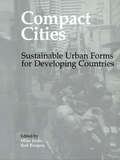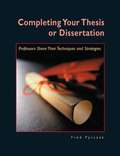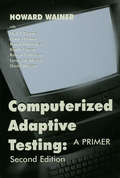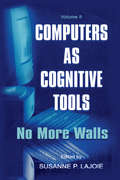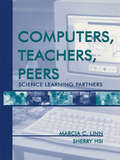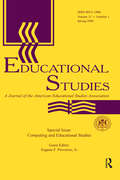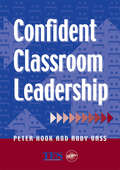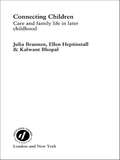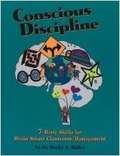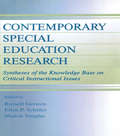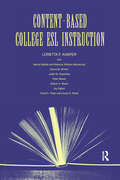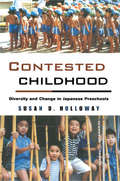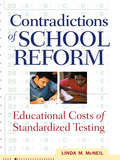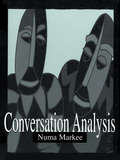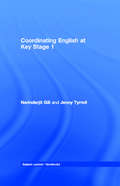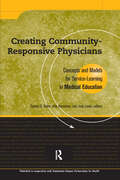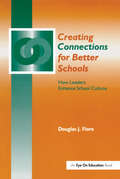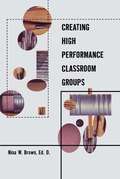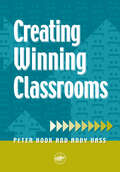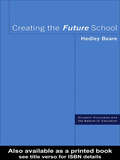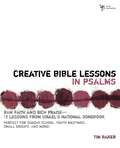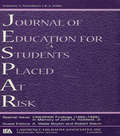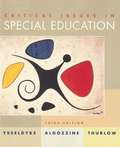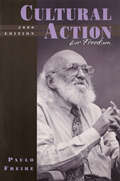- Table View
- List View
Compact Cities: Sustainable Urban Forms for Developing Countries
by Mike Jenks Rod BurgessThis collection of edited papers forms part of the Compact City Series, creating a companion volume to The Compact City (1996) and Achieving Sustainable Urban Form (2000) and extends the debate to developing countries. This book examines and evaluates the merits and defects of compact city approaches in the context of developing countries in Africa, Asia and Latin America. Issues of theory, policy and practice relating to sustainability of urban form are examined by a wide range of international academics and practitioners.
Completing Your Thesis or Dissertation: Professors Share Their Techniques and Strategies
by Fred PyrczakIn Completing Your Thesis Or Dissertation, Fred Pyrczak has assembled advice and anecdotal examples from seventy-one university professors for students who are frustrated with, or fail to complete, their dissertations. The wealth of techniques and strategies offered will prove invaluable for anyone struggling to complete a thesis or dissertation regardless of subject matter or category of topic. The contributors cover all aspects of the thesis or dissertation process including defending the writing, getting help from others, goals and timelines, outside pressures, overcoming self-doubt and anxiety, the prospectus/proposalm reviewing the literature, rewarding oneself, selecting a committee and chair, selecting a topic, writing, work habits, working with the committe and chair, dealing with writer's block, and more. Completing Your Thesis Or Dissertation should be required reading for all students who are faced with the often daunting task of writing a thesis or dissertation.
Computerized Adaptive Testing: A Primer
by Howard Wainer Neil J. Dorans Robert J. Mislevy Ronald Flaugher Bert F. GreenThis celebrated primer presents an introduction to all of the key ingredients in understanding computerized adaptive testing technology, test development, statistics, and mental test theory. Based on years of research, this accessible book educates the novice and serves as a compendium of state-of-the-art information for professionals interested in computerized testing in the areas of education, psychology, and other related social sciences. A hypothetical test taken as a prelude to employment is used as a common example throughout to highlight this book's most important features and problems. Changes in the new edition include: *a completely rewritten chapter 2 on the system considerations needed for modern computerized adaptive testing; *a revised chapter 4 to include the latest in methodology surrounding online calibration and in the modeling of testlets; and *a new chapter 10 with helpful information on how test items are really selected, usage patterns, how usage patterns influence the number of new items required, and tools for managing item pools.
Computers As Cognitive Tools: Volume II No More Walls (Technology And Education Ser.)
by Susanne P. LajoieSince the publication of the first edition of Computers as Cognitive Tools in 1993, rapid changes have taken place in the uses of technology for educational purposes and in the theories underlying such uses. Changes in perspectives on thinking and learning are guiding the instructional design of computer-based learning environments. Computers as Cognitive Tools, Volume II: No More Walls provides examples of state-of-the-art technology-based research in the field of education and training. These examples are theory-driven and reflect the learning paradigms that are currently in use in cognitive science. The learning theories, which consider the nature of individual learning, as well as how knowledge is constructed in social situations, include information processing, constructivism, and situativity. Contributors to this volume demonstrate some variability in their choice of guiding learning paradigms. This allows readers the opportunity to examine how such paradigms are operationalized and validated. An array of instructional and assessment approaches are described, along with new techniques for automating the design and assessment process. New considerations are offered as possibilities for examining learning in distributed situations. A multitude of subject matter areas are covered, including scientific reasoning and inquiry in biology, physics, medicine, electricity, teacher education, programming, and hypermedia composition in the social sciences and ecology. This volume reconsiders the initial "camp" analogy posited in 1993 edition of Computers as Cognitive Tools, and presents a mechanism for breaking camp to find new summits.
Computers, Teachers, Peers: Science Learning Partners
by Marcia C. Linn Sherry HsiLinn and Hsi show how computers, teachers, and peers can serve as learning partners--helping students build on their ideas and become lifelong science learners. They invite everyone interested in improving science education to build on their experiences, share insights on the Internet, and create instruction. Computers, Teachers, Peers: * offers case studies to bring the ideas of students learning science to life. *Join Sasha, Chris, Pat, and Lee as they try to make sense of experiments using computers to display data in real time;* * provides principles to help teachers improve their instruction, use technology better, and inspire more students to love science. *Find out how to use visualization tools, online discussion, and more to make science relevant;* * gives researchers and instructional designers a model for effective research and curriculum design. *Linn and Hsi report that the partnership approach to research resulted in a 400% increase in student understanding of science;* * helps schools develop technology plans that continuously improve science instruction. *Find out how schools can design better ways to use technology for learning;* * describes a partnership inquiry process where science teachers, science education researchers, discipline specialists, and technologists consider each others' perspectives and jointly design instruction. *Boys and girls are equally successful in the resulting science courses;* and * features practical tools for learning and instruction, including "Points to Ponder"--to encourage reflection on the ideas in each chapter (partnership groups or classes might use the points as discussion starters or assignments), and "Ask Mr. K."--an interview, in each chapter, with the classroom teacher who was a founding member of the CLP partnership (in these interviews Mr. K. adds insights from his own classroom experiences). This book is supplemented by a CD-ROM (included in each copy) and a Web site (www.clp.berkeley.edu) with the Computers as Learning Partners curriculum, lesson plans, a Quicktime virtual reality visit to the classroom, copies of assessments, opportunities to join partnerships, and more. For readers who wish for more information, Related Readings are cited, including works by authors mentioned in each chapter. Additional works by other authors who inspired the authors appear in the bibliography, on the website, and on the CD-ROM. An annotated bibliography of papers by the members of the CLP partnership also appears at the website and on the CD-ROM.
Computing and Educational Studies: A Special Issue of educational Studies (Counterpoints Ser. #123)
by Jr. Eugene F. ProvenzoThis special issue calls for a greater awareness of computing as a critical area of study for those interested in educational studies. Its purpose is to open up a wider dialogue about computing and education than has previously existed in the field. The questions raised provide the basis for a lively discussion and analysis of the role of educational studies in interpreting the role of computing in our culture and educational system. This issue also provides a model for exploring other topics of similar significance and importance to the field in future issues of the journal.
Confident Classroom Leadership
by Peter Hook Andy VassFirst Published in 2000. Routledge is an imprint of Taylor & Francis, an informa company.
Connecting Children: Care and Family Life in Later Childhood
by Julia Brannen Kalwant Bhopal Ellen HeptinstallConnecting Children focuses on children's understandings of care and their views of different family lives. It portrays the lives of children aged 11-12 and shows how families connect children in different ways both in the household but also in their wider kinship networks. The children studied reflect upon family life and especially upon situations where their own family lives change dramatically, such as when parents divorce or are unable to care for them. This book will be of interest to those working in education, social work, child care, counselling, social policy and childhood studies.
Connections: Basic Skills in Social Studies
by Steck-VaughnA second chance for your low-level readers having trouble in the content areas. Connections offers subject-specific titles in all the content areas written at reading levels 5-8. Designed for independent use. Connections is truly a self-directed program. With its low reading level and straightforward directions, students can measure their own progress with pre-tests and post-tests. Correlation charts are tied to test questions directing them to the precise pages to study for each type of question. <BR>-- Units on the world of work and careers are tied to content areas. Answers and explanations in each book enable students to check their answers and understand the thinking behind each question. Real-life and work graphics content designed for secondary students help them connect academic skills with life and work skills. Reading selections emphasize comprehension, so students can improve reading skills as they gain content knowledge.
Conscious Discipline: 7 Basic Skills for Brain Smart Classroom Management
by Becky A. BaileyConscious Discipline is a comprehensive social and emotional intelligence classroom management program that empowers both teachers and students. Based on current brain research, child development information and developmentally appropriate practices, the goal of the program is to provide systematic changes in schools by fostering the emotional intelligence of teachers first and children second. Teachers have been put in the impossible situation of teaching students without the necessary discipline skills to address the emotional and social issues of today's children. Teachers must be empowered. They need to know what to do and when. They
Contemporary Special Education Research: Syntheses of the Knowledge Base on Critical Instructional Issues (The LEA Series on Special Education and Disability)
by Sharon Vaughn Russell Gersten Ellen P. SchillerConsiderable research in the past 30 years has accumulated regarding the academic and social functioning of youngsters with disabilities. Only in the past decade has there been sufficient special education research published from which meta-analyses and syntheses can be conducted. In this volume, seven sets of authors grapple with synthesizing the knowledge base on an array of critical topics in the field of special education. Among others, specific chapters include: * a synthesis of what is known about effective instructional grouping practices for reading. * an examination of the differences between students classified as learning disabled and other low-achieving students on a range of academic performance measures. * a review of effective instruction for English-language learners. * an examination of the research on behavioral supports for low-incidence special education populations. * a synthesis on how technology supports literary development, across the full spectrum of disabilities categories. These papers provide up-to-date, informative summaries of current knowledge and a base from which further venture into the critical area of instructional intervention in special education can occur.
Content-Based College ESL Instruction
by Donna M. Brinton Loretta F. Kasper Marcia Babbitt Rebecca William Mlynarczyk Judith W. RosenthalThis book is carefully designed to inform and train readers in the techniques of content-based ESL instruction and to assist them in developing and implementing content-based materials and programs appropriate to their educational institutions and situations. Every chapter presents a balance of theory and practice, focusing on a detailed description, with clear examples of classroom practices including information, suggestions, and instructional tools. Each chapter addresses assessment issues as they apply to the particular methodology described.
Contested Childhood: Diversity and Change in Japanese Preschools
by Susan D. HollowayIn Contested Childhood, Holloway, an educational and developmental psychologist, examines the Japanese preschool and identifies the cultural models that guide Japanese child-rearing as being contentious and fragmented. She looks at the societal, religious and economic factors that shape various preschool programs and shows how culture influences child-rearing beliefs and practices.
Contradictions of School Reform: Educational Costs of Standardized Testing (Critical Social Thought)
by Linda McNeilFirst published in 2000. Routledge is an imprint of Taylor & Francis, an informa company.
Conversation Analysis: Capturing Transitions In The Classroom (Second Language Acquisition Research Series #295)
by Numa MarkeeConversation analysis is a methodology that originated over three decades ago as a sociolinguistic approach but has since been adopted by scholars in a variety of other areas, including applied linguistics and communication. It is of great utility in second language acquisition research for its demonstrations of how micro-moments of socially distributed cognition instantiated in conversational behavior contribute to observable changes in the participants' states of knowing and using a new language. This volume describes the methodology in detail, discusses its relevance for current theories of SLA, and uses two extended examples of conversational analysis to show how learners succeed or fail at the job of learning the meaning of a word or phrase in conversational context. This book is one of several in LEA's Second Language Acquisition Research Series dealing with specific data collection methods or instruments. Each of these monographs addresses the kinds of research questions for which the method/instrument is best suited, its underlying assumptions, a characterization of the method/instrument and extended description of its use and problems associated with its use. For more information about these volumes, please visit LEA's Web site at www.erlbaum.com
Coordinating English at Key Stage 1 (Subject Leaders' Handbooks)
by Jenny Tyrrell Narinderjit GillThis handbook has been specially written for primary teachers who have responsibility for coordinating English at Key Stage 1. It goes step by step through every stage of coordinating English in primary schools and provides valuable information for teachers who are new to being a subject leader, as well as those with more experience. Full of accessible advice and suggestions for improving practice, the handbook shows how a coordinator can create policies and links that work, exploit resources to the best effect, and develop the knowledge and expertise that will raise school standards.
Creating Community-Responsive Physicians: Concepts and Models for Service-Learning in Medical Education
by Sarena D. Seifer, Kris Hermanns, Judy Lewis, Edward ZlotkowskiEighth in AAHE’s Service-Learning in the Disciplines Series, this volume shows how service-learning is not only a strategy for preparing community-responsive and competent health physicians, but also for fostering citizenship and changing the relationship between communities and medical schools. This very useful book provides readers with a valuable source of information and inspiration to develop and expand service-learning across the continuum of medical education.
Creating Connections for Better Schools: How Leaders Enhance School Culture
by Douglas FioreThis book demonstrates that student achievement depends on school culture, the one element of your school at the foundation of everything that happens there. School culture is the system of beliefs, values, and expectations that governs the feelings and actions of everybody there. This book shows how principals can build relationships and connections to enhance school culture. Practical and accessible, this book provides guidelines which will show you how to:- communicate with teachers, students, and parents on a regular basis - be "visible" - recognize, utilize and empower your faculty
Creating High Performance Classroom Groups (Source Books on Education)
by Nina BrownFirst Published in 2000. Routledge is an imprint of Taylor & Francis, an informa company.
Creating Winning Classrooms
by Peter Hook Andy VassThis book offers teachers important insights into the emotional classroom climate necessary for successful and effective learning. Following from the first book, Confident Classroom Leadership, the authors present a range of ideas and understandings to support teachers in proactively building and sustaining an emotionally empowering classroom. The beliefs and behaviors that underpin and develop positive self-esteem and strong motivation in students are described in an accessible and informative format. This not only invites readers to reflect on their teaching style, it also encourages them to comfortably integrate the strategies and ideas into their existing practice. As you would expect from two highly experienced practitioners, the book is firmly based in the reality of today's busy classrooms.
Creating the Future School (Student Outcomes And The Reform Of Education Ser.)
by Hedley BeareThis fascinating book is based on the changes to schooling that a five year-old, Angelica will see in her lifetime. It is divided into two parts: the first describes how schools are viewed by society; the second considers practical responses that schools can make to keep up with change. Creating the Future School predicts that the career of teaching will change and the work of the professional educator will differ significantly from what has been the traditional teaching role in schools of the twentieth century. The book addresses principals, senior members of school staff, teachers, governors and policy makers and aims to open up the reader's awareness to the profound shift in society and how society views its schools.
Creative Bible Lessons in Psalms: Raw Faith and Rich Praise---12 Lessons from Israel's National Songbook (Creative Bible Lessons)
by Tim BakerLet your students experience the raw faith and rich praise in Israel’s national songbook--the Psalms.The 12 sessions in Creative Bible Lessons in Psalms (the latest in Youth Specialties’ Creative Bible Lessons series) unwrap this Old Testament book so your students understand the passion, anguish, and joy expressed by David and the other Hebrew songwriters--and then learn to love the same God that the ancient Jews loved.The meetings (which are perfect for high schoolers and middle schoolers alike) are arranged around kinds of Psalms, including—Torah Psalms Seeing God at work in your personal historyComplaint Psalms When you’re attacked, is God always your bulletproof vest?Royal Psalms Jesus in the PsalmsTrust Psalms The God who really knows you, inside and outPenitential Psalms Shedding old skin--forgiveness and renewalThanksgiving Psalms Gratitude is next to godlinessOracle Psalms How to hear GodTaunt Psalms Battle lines are drawnAnd each session is loaded with options galore: clips from easy-to-get videos, games for mixing and games with a purpose, in-depth and ready-to-use questions for small-group discussions, original role plays, low-prep scripts, talks for you to give--activities to choose from that give your students not only a memorable time in youth group, but a taste of both the quiet trust and the boisterous celebration that the Psalms overflow with.Perfect for Sunday school teachers, youth workers, volunteers, CE directors, DREs, associate pastors--whoever wants to minister to real teenagers in a real world.
Crespar Findings (1994-1999): In Memory of John H. Hollifield. A Special Double Issue of the journal of Education for Students Placed at Risk
by A. Wade Boykin Robert SlavinThis double issue presents summaries of the scholarly and practical-reform accomplishments of the first five years of the Center for Research on the Education of Students Placed at Risk (CRESPAR). This bold, five-year initiative addressed several of the problems that most directly challenge the values and practical aspirations of modern democracies. The included articles emphasize how CRESPAR has focused on the schools in many of America's most challenging communities. It has both helped local schools improve themselves and advanced the nation's research base. This issue was written in commemoration of the life and work of John Henry Hollifield, Jr., founding coeditor. For 28 years, Hollifield served as an editor and administrator at Johns Hopkins University's Center for Social Organization of Schools. When JESPAR was just an idea, Hollifield was one of the people who most strongly advocated its development. He had a ready smile, a fine editorial touch, and a relentless will to produce each excellent issue. This issue, summarizing much of the research from CRESPAR's first five years, is presented by the full team of authors in his loving memory.
Critical Issues in Special Education, Third Edition
by Martha L. Thurlow Bob Algozzine James E. YsseldykeCritical Issues in Special Education is an analysis of important conceptual and practical issues that face special education professionals. Part One illustrates the background and status of special education through current analysis of fundamental guiding practices. Part Two focuses on key practices in special education services. Part Three provides an analysis of social, political, legal, and economic activity reflected in special education practice.
Cultural Action for Freedom (HER Reprint Series)
by Paulo FreireIn this volume, we have chosen to highlight the importance of education to human rights by reprinting two articles written by Paulo Freire (1921-1997) in 1970 for the Harvard Educational Review.
